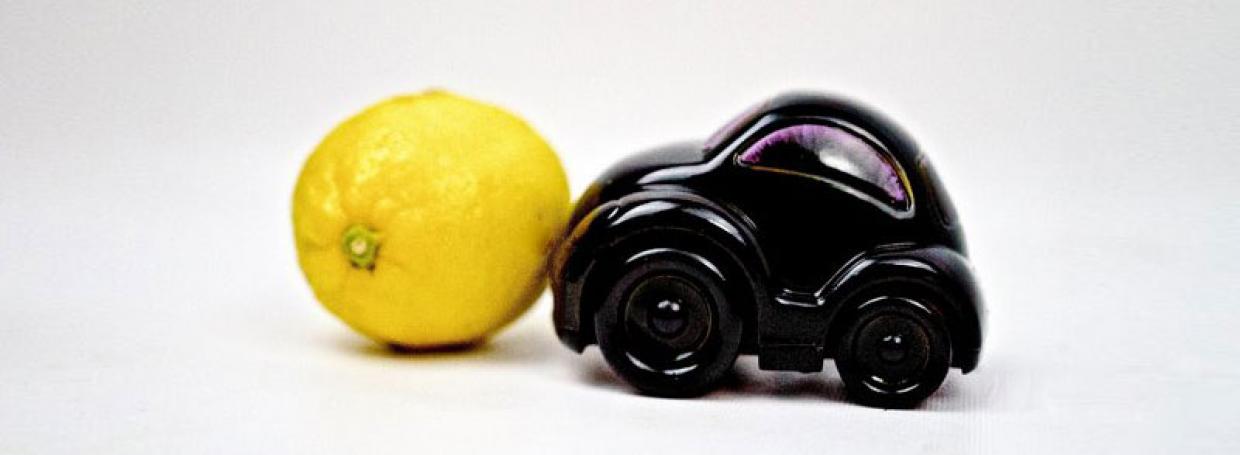Lemon Law for Cars | What You Need to Know

Singapore’s Lemon Law: How It Protects You from Fraudulent Car Dealers
Reading time: 3 mins
What is the Lemon Law? Well, it has nothing to do with the fruit but it does protect you when you purchase consumer goods in Singapore, including your vehicle.
In the 1960s, brand new and secondhand cars that had manufacturing defects were called lemons. Most likely because of its connotation to something that's sour and decidedly distasteful. Since then, the term stuck and is now taken to refer to consumer products that turn out to be defective after purchase.
As this is an all too common experience, in 2012, the Singapore Government amended its Consumer Protection (Fair Trading) Act (CPFTA) to include the Lemon Law. The CPFTA was designed to protect consumers from unfair purchases. For example, when you buy a car in Singapore and a defect appears within 6 months of your purchase, it is assumed that the defect existed at the time of sale, and responsibility to compensate falls on the car dealership, unless proven otherwise.
It’s good to know that the law protects you should your car purchase – new or secondhand – ends up being a sour lemon. However, you should understand what the Lemon Law does and does not cover, and how it can protect you as a car owner in Singapore.
What the Lemon Law covers
- Physical goods purchased either online or offline
- Second-hand goods and vehicles
- Goods purchased under conditional sale agreements, provided that they are not rented or leased
- Display sets, discounted items with minor defects, and sale items, even if they are marked as non-refundable or non-exchangeable
What the Lemon Law does not cover
- Goods that are rented or leased
- Real estate property
- Services
- Consumer-to-consumer transactions
- Business-to-business transactions
This means your purchase is not covered if you buy a used vehicle from an individual seller instead of a trusted car showroom or used car dealer in Singapore.
However, a purchase of a new or secondhand vehicle from a dealer is covered by the Lemon Law, whether you buy it at a brick-and-mortar shop or from an online used-vehicle marketplace.
You should also note that the law still holds even if the seller has a non-refundable policy or has a sign on the shop saying that the goods are sold as it is.
How does the Lemon Law work?
Quality Assurance
The Lemon Law kicks in if a purchased good is found unsatisfactory or does not comply with the sales contract at the time of delivery. It also applies if the item is found defective within 6 months of purchase.
In the latter case, you can ask your used car dealer to repair or replace the vehicle, and give them a reasonable amount of time to do so. If they fail to do so, you can ask either for a reduction of the selling price or to return the vehicle in exchange for a full refund. But, most of the time, the car dealer tends to agree to shoulder some of the repair costs.
Minimising Risk
Purchasing a new or secondhand car always comes with its own risks. For secondhand cars, the longer it has been in use and the farther the distance it has travelled, the higher the chances of defects and failure.
On top of that, your car’s condition also affects the price of your car insurance, so you would have to factor that into your budget. You can request for a direct quote online to find out how much it will cost you in terms of car insurance. Even with the Lemon Law protecting you, you should conduct a thorough inspection and do your necessary research, before you make the purchase.
No More Sour Lemons with the Lemon Law in Singapore!
Remember that the Lemon Law is only beneficial when the law covers the goods you purchase. So, when you buy a brand new car in Singapore or if you are opting for a secondhand one, our advice is to go with a reliable car dealer as all accredited entities are bound to follow the Lemon Law that protects consumer’s rights in Singapore, including car owners.
While Singapore’s Lemon Law offers additional protection for consumers, you should also take steps to strengthen your chances for a successful Lemon Law claim, if you do submit one. You should collect and save evidence, such as photos or videos, of any defect you find or keep receipts of your purchases for at least 6 months to prove the date of delivery.
